Unlike other sites, I don’t re-run anything that has appear elsewhere. I’m making an exception in this case, however. Brad Dodge at healthcare marketing and PR company Dodge Communications did a fun writeup of the HIMSS exhibit hall that I thought deserved a broader audience. He gave the OK to run it here.
Did You Make the HIMSS Best and Worst List?
By Brad Dodge, Dodge Communications

One of the most challenging elements of marketing communications is that it can be VERY subjective. When vendors are considering their investment to exhibit at a conference like HIMSS11, how important is it to have a brand new booth? Sure, it’s cool, but also expensive. Does the incremental investment bring in a commensurate number of leads into the booth? And how on earth do you measure that? How about a question like, “Thanks for coming into our booth. Would you have come by if our booth was 20% less cool? 40% less cool?” Didn’t think so.
So, no disrespect intended, let us acknowledge our best and worst of HIMSS awards. Don’t forget, there were more than 1,000 exhibitors, so if you think you were the worst in a category that we awarded to someone else, it’s probably because we didn’t see you. Which is for another conversation altogether on visibility.
WORST IMAGERY: The see-through head with colored veins running down to the spine at Cattails Software. Turns out that the entire brand identity is centered on the see-through head. Maybe it appeals to physicians. Not us.
MOST SURPRISINGLY NICE THEATER AREA: CDW. Very engaging, close to the aisle, nice little talk-show-interview area off to the side and very clean presentation technology.
WORST SIGNAGE: Merge Healthcare. A whole backdrop of patents that the company holds, we guess. They were too small to read, but big enough to look like we were supposed to be able to read them. If we hadn’t asked the guy what they were, we’d have never known. Lost opportunity.
MOST OBVIOUS CASE OF LITTLE-BOOTH-IN-A-BIG-SPACE: Healthwise. Refer back to our comments in the opening paragraph. Our opinion: if you’re going to the black tie event, you gotta spring for the tux.
MOST OVERUSED BRIBERY TOOL: The Apple® iPAD®. We lost count of how many vendors had stacks of them that they’d give/raffle to attendees who’d listen to the pitch. And don’t get us started talking about the misuse of the trademark.
WORST FASHION STATEMENT: As in the shortest skirt. As in who thought that was a good idea? We saw her at the ACS booth. We thought that booth babes had toned it down? Maybe their parent Xerox forced them into it.
WORST FLOOR PLAN FAUX-PAS: HIMSS interoperability showcase was WAYYY at the end of the hall, and it was a really cool exhibit. If you went a little bit past it, you’d be at Cape Canaveral. We think it should be the absolute center of the show floor.
HONORABLE MENTION FOR LONGEST USE OF THE TRUSS BOOTH: We’re sure there were OLDER booths in the hall, but nothing says 1990 like a booth built using trusses. We guess they’re still paying off the loan. Award goes to ESRI. At least the booth staff wasn’t wearing leg warmers.
MOST OVERUSED ICON: The world. As in global healthcare. Get it? ESRI wins it again. Mainly because we didn’t write down the others.
MOST BLATANT DISREGARD FOR TRADEMARKS: This list is entirely too long to publish. For a taste, go here. What was so surprising is that every one of these companies would go ballistic is their own IP or trademarks were compromised similarly.
BEST GIVEAWAY THAT THE DODGE TEAM WANTED TO WIN: The waverunner at the SCC booth. We’re looking up SCC on Google, and once again are stumped by the acronym that’s shared by a zillion other organizations. Is it Spokane Community College? (first result) Scottsdale Community College? (second result) Seminole State College? (third result, and it’s not even an SCC!) Did you already see our opinions on the strength of acronyms in healthcare brands? So, we had to go to the HIMSS pocket guide to figure out who the winner is. SCC is SCC Soft Computer.
FRESHEST GRAPHICS: IBM. We know it’s a challenge to have noticeable graphics at a behemoth conference like HIMSS. We think IBM did a nice job. Colorful. Different. Link to healthcare.
BEST NOT-FEELING-THE-THEME: Epic. The stacked stone, jewel tones, solid-walled booth is obviously very expensive to build, ship and store. We felt like we were in the past. Does anyone care?
BEST NEW BOOTH DESIGN: We have to say that we liked the way that the long, narrow Moss headers were used in a number of new booths to pull the exhibits together without cramping the space. Allscripts and Ingenix both did a nice job at this.
All in all, we were thrilled to have a dozen of our employees at HIMSS11 meeting with clients, editors and others. We thought it was a great show and look forward to 2012 in Las Vegas.
Dr. Gregg "1 to 3 Docs" Goes to HIMSS (Part 1)
Amidst the ACO, ACA, MU, ONC, and HITECH BS buzz these days, it seems there is also a lot of chatter amongst HIT vendors, HIMSS helpers, and REC-related registrars about how to reach the 1 to 3 provider practices, how to get the bit players biting on the digital bait.
If my numbers are still accurate (I haven’t checked them in a few years,) the majority of healthcare in our country is still being delivered in the small practice and small community hospital setting. As I’ve long ranted, you can’t build a national health information network if over 60% of the network is ignored. Granted, we don’t have the glam and glitter of the giant groups and grandiose medical conglomerates, nor can we write those big, beautiful, multiply-zeroed checks that they can. But, we have one thing they don’t, one thing they need that only we can provide:
Us.
And, “they” need us. And, they’re starting to get that point. And, it’s about to get really interesting here in the trenches.
With that in mind, I thought it might be worthwhile to share a trench-eye view of the world of HIMSS11.
There’s really no other showcase for HIT left now that TEPR is pushing up digital daisies, no place else where you can see, en masse, what might be possible for a practice considering health IT options. And, what makes that sort of sad is the fact that the HIMSS conference doesn’t hold much draw for anyone from a 1-3 provider practice.
First off, HIMSS is an industry show, a vendor’s show. Even its timing during the work week bespeaks this. Unless you have a sugar daddy awaiting in the wings (or, unless you’re a committable geek like me,) you simply cannot justify losing thousands of dollars of income generation for the one or two or three work days that you’d need to sacrifice in order to go. Without a corporate expense account upon which to lean, it’s a bear trying to go to a conference held during work days. Most grunts prefer to save those times off for family vacations, not stuff which is essentially more work.
Secondly, HIMSS isn’t really 1-3 doc friendly. Seminars and educational sessions are targeted toward CIOs, CMIOs, CTOS, CEOs, other “O”s, and informatician-types who have no, or very little, interaction with or awareness of the little "o"s in the 1-3 provider world. I truly doubt many "1-3’ers" who are just considering the whole EHR thing would find much of value at their level during HIMSS. I doubt many of them think about ONC or HITECH unless they have to, which likely isn’t too often. I doubt many of them care a smidge about server-based versus SaaS. They mostly want to know how to do this digital redirection with as little pain as possible and get on about the business of being patient care providers.
Third, as others have opined, walking the HIMSS floor without "VC" stamped on your head or a green "PRESS" banner flying below your HIMSS badge may limit your ability to get a conversation started, at least in some vendors’ booths. I have had the notion that HIMSS exhibit hall exhibits are more designed for inter-exhibitor intercourse than any product promotion to potential end users. (Plus, just a little side note here: I understand how boring it can be in an exhibit booth with no visitors, but if I were a corporate CEO and saw someone representing my company’s interests with as much neglect and disrespect as some I saw on the HIMSS exhibit hall floor, there’d be a post-HIMSS Pink Slip Thursday pending.)
Bitch, moan, bitch, moan. As I said in my last post, I despise non-constructive whining. So, in keeping with that credo, and after a few more observations, I will be offering up some potential remedies next time in “1 to 3 Docs” Goes to HIMSS – Part 2.
From the trenches…
“Not engaging in ignorance is wisdom.” – Bodhidharma

E-mail Gregg.
Thoughts on the HIMSS Conference
By ED Doc
From the standpoint of a clinician (a.k.a. "doctor"), HIMSS was — and usually is — a great opportunity to get an idea of the underlying forces that are shaping the development of health IT, whether substantive or faddish. However, these forces are all operating on a scale, and in an environment, pretty far removed from where actual healthcare happens, e.g. the doctor-patient relationship.
To look at it in a more cynical fashion, make no mistake – this is a trade show where vendors of large information systems and hardware attempt to sell them to frequently non-clinical IT personnel. That said, I found many of the booth personnel to be reasonably friendly, but I can’t rule out a bit of selection bias.
At least in name, there were many educational sessions addressing operational and organizational challenges, but many of these ended up just being information-light or thinly disguised case studies of Vendor X’s product that lacked much depth. You’ll have to look elsewhere to learn about process innovation, re-engineering healthcare, etc.
That’s not to say that the conference is bad. Certainly not. You just have to keep in mind what it is and what it isn’t. HIMSS is kind of like Home Depot. It might be a great place to see new tools, but it’s not where you to go to learn how to build a house.
As a clinician, I came away with an appreciation of a few things. In an effort to chase after the $$$($$$$$) sloshing around healthcare these days, many vendors have created products that clearly demonstrate a lack of understanding about what end users actually want and need. Of course, given their real target audience, this might not matter to them. Moreover, for the large subset of back-end systems and products, their application to healthcare is almost an aside.
(Speaking of asides: yeah, we know you all create value and whatnot, but how are you different and/or better than the other 20 vendors in the exact same space? For that matter, what exactly is it that you do?)
This shortcoming is often compounded by the fact that decisions regarding clinical systems are often — if not usually — made by non-clinicians looking out for their own interests. They’re not out to screw the clinicians, but if there’s any trade-off between the clinicians and the admin/IT side, we know who will win the tug-of-war.
HIMSS provides great insight into understanding the what, how, and why of health IT development. Though unintentional, it’s also a good reminder that healthcare is rapidly shifting from small(er) collections of independent providers to large systems with a corresponding shift of decision-making away from the clinicians to a concentrated group of often non-clinical individuals. It’s a real bummer for people like me, but instead of denying reality we might as well learn how to play the game.
HIMSS Recap
By Evan Frankel
HIMSS ’11 is now officially behind me. Originally tasked with reporting on the HIStalkapalooza party, there was a conflict with my desire to punish my liver. Therefore, after a couple of days of recovery, feverish work to network and saunter the exhibit hall, all that is left is a newbie’s recap of the conference.
The last HIMSS I attended was quite some time ago. I was a much different person and the industry was in a much different place. What was once an informational and educational experience to be shared with industry peers and HIT professionals has warped into a testament to the power of marketing dollars and a commitment to further the sales of vaporware and roadmaps.
I thought I was prepared. I believed that my conviction to spend the entirety of each day in the exhibit hall (bless you Exhibitor badge, you keep me from winning prizes, but enable me to loiter whenever I please) was well meaning as I knew that I could easily download and review all sessions at a later time. In hindsight, I wish I wore a pedometer.
Clearly this is a rapidly evolving industry, what just a couple of months ago was a drive to Meaningful Use, federal inducement and incentive, and a push to make digital every last granule of data has altered course to focus on the eternally long list of problems already encountered. It seems like vendors wanted to talk about their few happy clients and wouldn’t admit to any struggles or lessons learned.
I visited, in one way or another, 84% of all of the booths on the floor (yes, that means I am without a voice today and shook almost 850 hands). I asked everything from the most basic question, “What do you do?” to engaging in hour-long conversations about the challenges companies have in retaining talent and clients. I am always impressed to see passion and conviction, it goes without saying that being in love with your company is an engaging trait.
I saw some things that not even ‘brain bleach’ can remove from memory, which is a shame. Not only is the overtly obvious booth-babe phenomenon here to stay, but the desire to at least make them conversant in their employer’s product or mission seems to no longer be even a slight priority. I am not leering at you, I am just floored that you are not able to help me in any way.
Even the most senior of executives were forced into booth duty, which could have been very refreshing, but in certain cases was both scary and cringe-inducing. Case in point: I was told by more than one vendor, in reference to long and close-to-failed EMR implementations, that they are a good thing since the vendor collects pay by the hour. I had another vendor tell me they sell implementation support and training time by the 100-hour block because anything else would nickel-and-dime the customer. When asked about small practices, there is not a per-hour rate (which would help me understand the profit margin on implementations, since the same company was hiring project managers and implementation staff). But at least they were honest, which couldn’t be said for all.
I did find a partner in crime on Tuesday. Armed with the exact same questions for the exact same vendor, we were able to get completely different answers to the same question. “Can I run this in my data center?” shouldn’t elicit both a Yes and a No. But I guess we could chalk that up to, “it’s all customizable”, which may be the mantra that I take to every meeting I ever attend. It sure beats committing to one answer or solution, I suppose.
To the gentleman who stood next to me at the Google booth and asked the employee what “this Google thing does”, as if he had never heard of them, thank you for being the funniest guy in the room. But it also made me sad, as their answer wasn’t, “Oh, we are here to take over the world, at least all of it that isn’t Europe.” That would’ve been super cool and probably more honest.
The best attraction that a booth could present, in my novice opinion, is the soft, ultra-plushy carpet. I have no idea if that was an up-sell from the convention center or not, but after logging 5+ miles each day on the concrete covered by a millimeter of carpet, a soft booth floor was welcome respite.
I tried to muster the energy to engage all of the hired booth talent as possible. I watched a man duct-tape his eyes shut and guess the serial numbers on a dollar bill. There is a lot of talent in that trick, but was it worth losing most of an eyebrow?
I saw comedy, three-card monte, and a bunch of artistic impressionism. Then I got tired of standing at the NHINDirect/Connect/Interoperability showcase and went back to the booths.
I don’t want to come off as angry, jaded, or a naysayer that we are getting further from solving most of our healthcare woes than we were before. However, if another person tells me all about the value they create with their solution without understanding the basic premise of entropy in the universe, I may beg HIMSS to administer an IQ test as part of registration. As a quick lesson, in order to create value, you must eliminate something, and I highly doubt it is your profit margin, so riddle me this — where did you get that value?
The booth demo on a large scale is a brilliant concept; it is akin to auditing a college course. You can come and go as you please and no one grades you on paying attention. In fact, if we were to require an assessment at the end of every 10 people or larger group demo, I would wager less than 1/3 could even get the product name right. Luckily next year is in Vegas, as I hope to actually find some action on these wagers (but I have a feeling I won’t be allowed back).
Speaking of Vegas, HIMSS executives predict a sharp increase in attendance in response to the location. I hope they market this correctly, as they should expect more registrants, not attendees. Vegas has a wonderful way to make you forget why you are there.
I will need to check, but I believe HIMSS will continue to be the same weekend as the “Great American Race”, which would have been a nice thing to know before I booked my travel plans. Not only would I have trekked to Daytona to see what the hubbub is about, but I am sure I could have had some easy pickings on making analogous the driving fast cars in circles to the current state of the HIT industry. Spinning tires until they explode? Banged-up, dented, smoking heaps of metal? That it takes 16 people to change a tire and fill a tank of gas? 100,000 people half-drunk standing in their own sweat? This is almost too easy.
Undeniably, HIMSS ’11 will be considered a success: record attendance, millions of dollars poured into the local taxi and livery economy, a significant dry-cleaning bill upon return for all those in attendance, and a chance for the industry to look inward and see how far we have come and have to go to increase adoption of tools that will improve patient care and health insurance company dividends.
For this naïve newbie to the industry, it was an overwhelming and underwhelming experience. I guess I ended up being whelmed in the end. There is so much noise, so much fear-mongering, so much confusion surrounding just about everything, that is no wonder we are going to Vegas next. For practices and hospitals making any technology decision these days, it is practically a crap-shoot. I would put my chips on another year of consolidation amongst vendors and a mix of success and horror stories from the institutions that adopt more technology.
In the end, it is what it is, no more or no less.
Pictures of HIStalkapaloozans
By David Polivka, Developer, Medicomp















Pictures of HIStalkapaloozans
By Anthony Istrico






 It’s just me (Mr. H) today since both Inga and I are on our respective spring breaks, although most of mine will involve working on HIStalk. Dr. Jayne pitched in to help cover by writing a great piece for HIStalk Practice called Meaningful Use: 15 Things Your Practice Can (and Should) Do Now.
It’s just me (Mr. H) today since both Inga and I are on our respective spring breaks, although most of mine will involve working on HIStalk. Dr. Jayne pitched in to help cover by writing a great piece for HIStalk Practice called Meaningful Use: 15 Things Your Practice Can (and Should) Do Now.  Listening: Deer Tick, no-nonsense, hard-living Americana rockers from Providence, RI. They’re good.
Listening: Deer Tick, no-nonsense, hard-living Americana rockers from Providence, RI. They’re good.  I’ll probably run a Readers Write Wednesday evening, so now’s your chance to get something to me that will appear quickly since I have just a couple of submissions so far.
I’ll probably run a Readers Write Wednesday evening, so now’s your chance to get something to me that will appear quickly since I have just a couple of submissions so far.  Dr. HITECH (aka Ross Martin MD of The American College of Medical Informatimusicology) releases the production video of The Meaningful Yoose Rap. You saw the live debut of the song at last year’s HIStalk reception at HIMSS in Atlanta, now check out the video, apparently filmed on location in Washington DC, including in front of the Capitol and HHS headquarters. Video credits here, lyrics here. Ross has kind of a Marky Mark thing going on that’s pretty cool. He’s obviously musically brilliant, like you didn’t already know that from his amazing Interoperetta. He also has some kind of HIT day job, but hey, we have plenty of people who do whatever that involves but not many who can entertain the industry.
Dr. HITECH (aka Ross Martin MD of The American College of Medical Informatimusicology) releases the production video of The Meaningful Yoose Rap. You saw the live debut of the song at last year’s HIStalk reception at HIMSS in Atlanta, now check out the video, apparently filmed on location in Washington DC, including in front of the Capitol and HHS headquarters. Video credits here, lyrics here. Ross has kind of a Marky Mark thing going on that’s pretty cool. He’s obviously musically brilliant, like you didn’t already know that from his amazing Interoperetta. He also has some kind of HIT day job, but hey, we have plenty of people who do whatever that involves but not many who can entertain the industry.  I was thinking about paper towel dispensers while in the airport restroom today, the kind where you wave your hand in front of the red light to have it dispense some preset length of towel. Some machines give an impossibly short length while others are more generous, leading me to speculate that they are networked devices using artificial intelligence (maybe adopted from slot machine technology) to determine the optimal mix of how much to dispense initially vs. how likely you are to begrudgingly accept the too-short length and leave with still-wet hands vs. just waiting until the red light comes back on to request another round by re-waving.
I was thinking about paper towel dispensers while in the airport restroom today, the kind where you wave your hand in front of the red light to have it dispense some preset length of towel. Some machines give an impossibly short length while others are more generous, leading me to speculate that they are networked devices using artificial intelligence (maybe adopted from slot machine technology) to determine the optimal mix of how much to dispense initially vs. how likely you are to begrudgingly accept the too-short length and leave with still-wet hands vs. just waiting until the red light comes back on to request another round by re-waving. 
































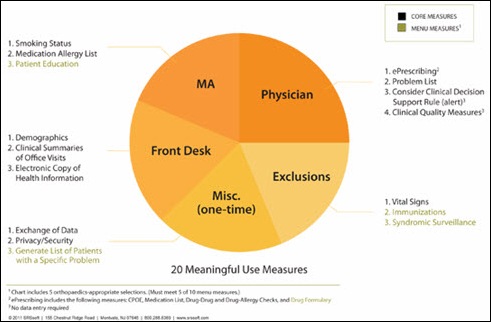
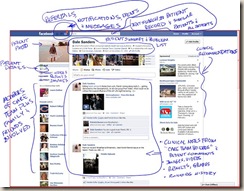


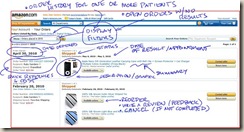












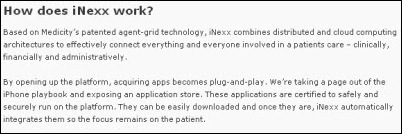

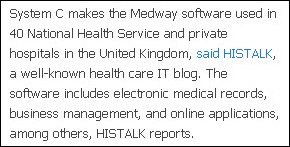






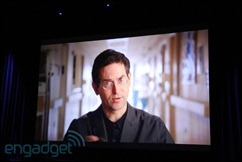









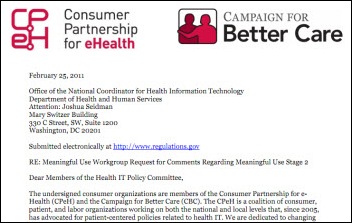

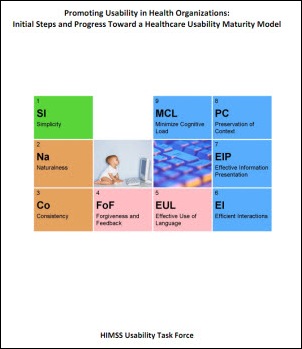











































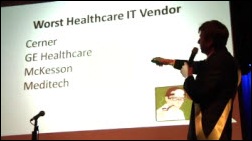
Thank you for your comments on Amazon. Agree 100%